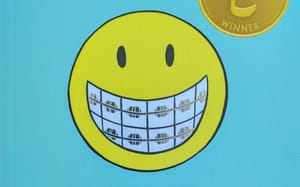First, a note on a couple of recent media experiences …
We went to The boat that rocked (aka Pirate Radio) recently and were determined to enjoy it. For those that don’t know, it is a movie set in 1966 on a ‘pirate radio’ ship broadcasting music into the UK. However nostalgia was not enough and we were disappointed. One interesting moment was when one of the DJs – Bob – went back into the sinking radio ship to retrieve a box of LPs. He did not want to lose them, and risked his life to retrieve them. And one could understand why: it was probably a lovingly chosen collection whose assembly represented a serious investment of time and effort.
Before going on a trip recently I bought a crime novel, thinking that I might not work all the time I was on the plane. Until recently, I would have thought that I was adding this to my collection of books. However, all I could think of as I was buying it was that if I had a Kindle I would be acquiring it for reading not for keeping. By contrast, I am currently reading Frank Kermode’s recent work on E.M.Forster, a book that, for now anyway, I am happy to own.
It is clear that our attitudes to ownership have changed, perhaps largely, initially, under the influence of music. My children add songs to their iTunes library but do not seem to have a sense of a building a collection. They are aware of the financial cost of replacing what they have built, but know that it can be easily rebuilt. I have a subscription to Zune Pass and am not always sure if I am listening to music I have bought or to songs that are part of a recommended playlist or that I have downloaded to listen to while I have the subscription. Last.fm, Pandora, and Spotify, for example, have accustomed people to models of consumption which don’t depend on amassing and owning a collection of CDs or even of a collection of digital files.
Movies are following. Again, if I think of our choices at home, we can get movies from Netflix, on demand cable, Zune/xBox marketplace, iTunes. The catalog may be shallower, but a range of films is available as a service.
Increasingly, we make choices about ‘owning’, renting, or simply experiencing music and movies. Books may follow.
A while ago, Nick Carr wrote about this change in our experience of music. He quoted from two BBC reports. One proclaimed “a new golden age of infinite music” in which “there’s no longer any past – just an endless present”. By contrast, he notes, John Taylor, of Duran Duran, takes a more “nuanced view” which he describes as follows: “He wonders whether such easy abundance doesn’t lead to a flattening of experience: When everything’s present, nothing’s new.” He provides a quote from Taylor, who on the basis of the ‘power’ of a TV experience, went on a ten-mile cycle looking for a record, and then listened to it again and again.
Taylor argues that, when it comes to music or any other form of art, the price of our “endless present” is the loss of a certain “magical power” that the artist was once able to wield over the audience. I suspect he’s right. [Be everywhere now]
So, as a full range of music, movies and maybe books becomes available to us, so too does our engagement with it change. Our sense of ownership changes, as media are delivered as a service. The work involved in assembling a personal collection diminishes. Our sense of historical perspective may change. But, I am not so sure about the loss of a certain “magical power” or the flattening of experience. Sure experiences are different. But think of an earlier transition. This magical power may also have been felt to be lost when “mechanical reproduction” allowed live performances to be shared in the first place: a recording could never take the place of a performance, could it?
Comprehensive digital availability represents another grade of experience, not a necessary withering of it. And it opens up other experiences.
Mind you, Bob probably wouldn’t have gone back for his iPod …
Related entries:



